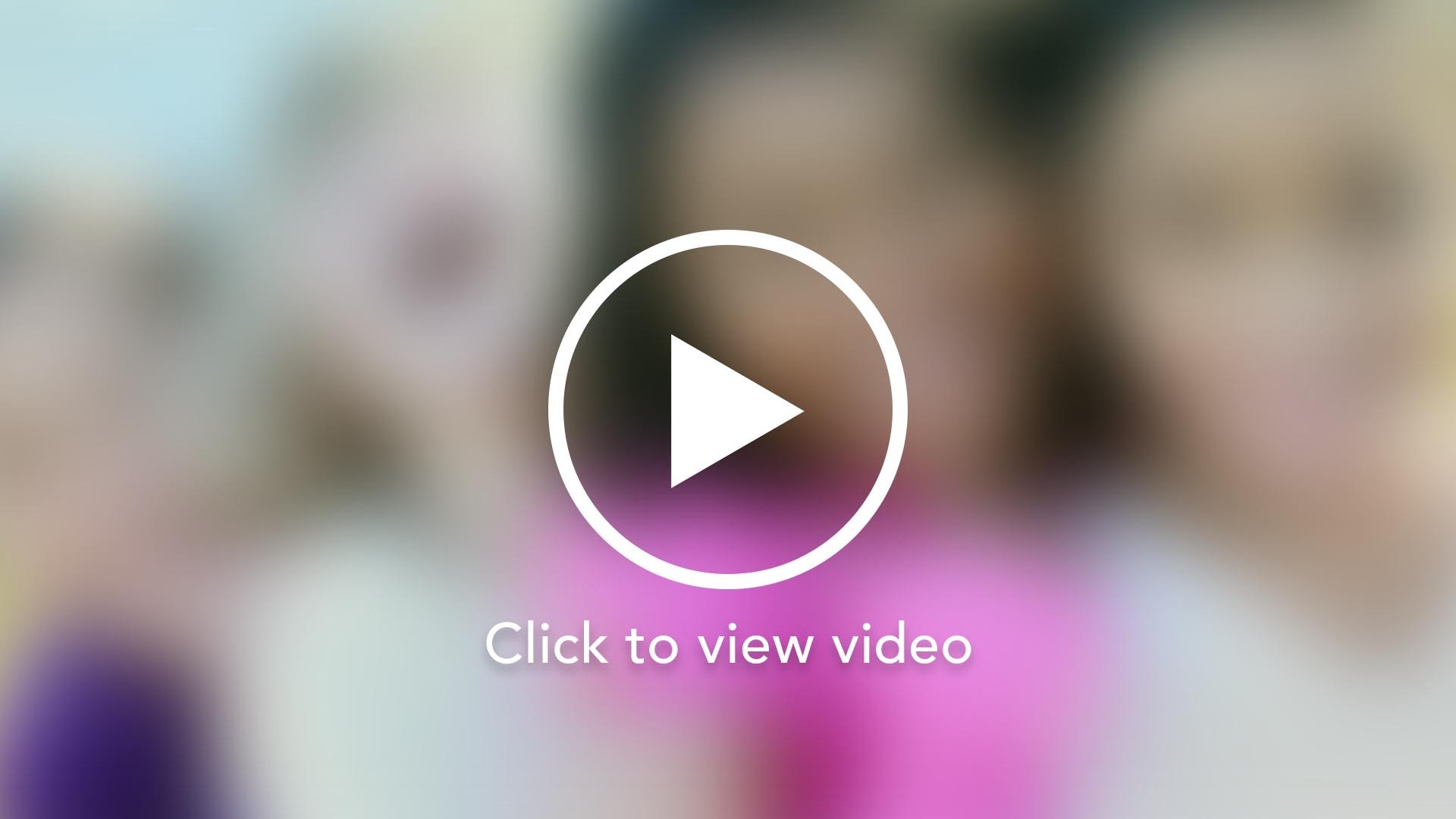Grade K – 2
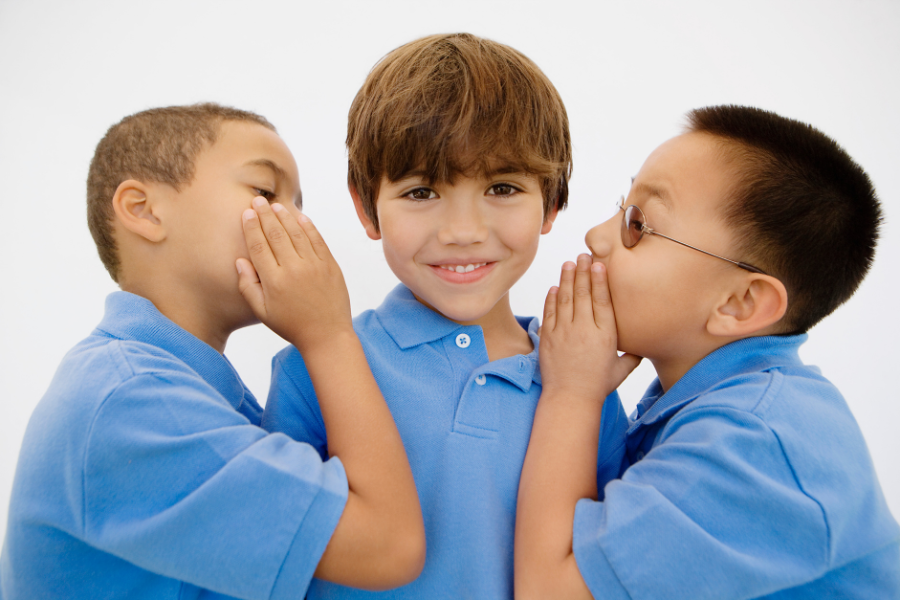
Lesson 1
Truth vs. Lie
- What does it mean to tell the truth? Something is true when it reflects facts or what’s real. Tell a story about a time you told the truth.
- What is a lie? A lie is when you know the truth and tell a different story. Tell a story about a time you told a lie.
- Small Talk – Telling the Truth
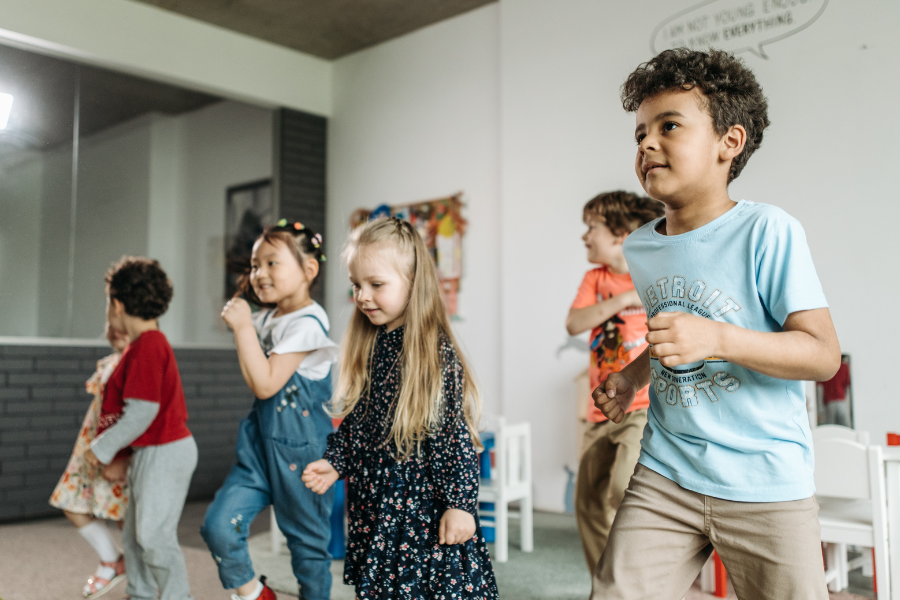
Lesson 2
Dance to the Music – Choose one of the following music pieces and listen. Have students, with feet still, move with the music or sing along. What does it mean to be brave? What does it mean to be happy? What does it mean for someone to count on you?
Brave – Sara Bareillis
Happy – Pharrell Williams
Count on Me – Bruno Mars
How can you be brave? How can you bring
happiness to yourself and others? Share a time when someone was able to count on you.
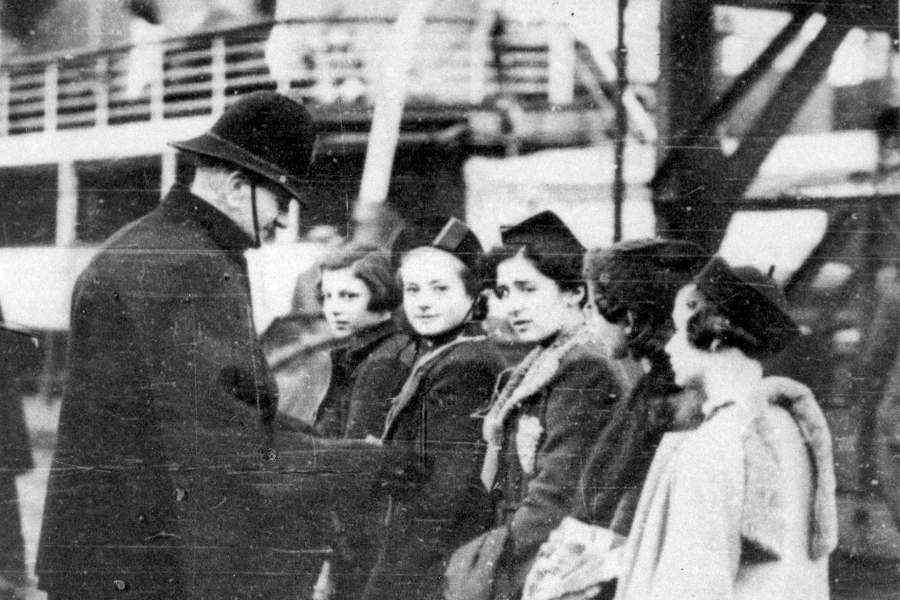
Lesson 3
Kindertransport – Saying Goodbye
In 1938 10,000 children left their families forever. They traveled on trains to live with a new family so they would be safe. Discuss: What do you think it was like for the children to say goodbye to their moms and dads? How do you think they felt? What you would say to your mom and dad before getting on the train? Share with a friend.
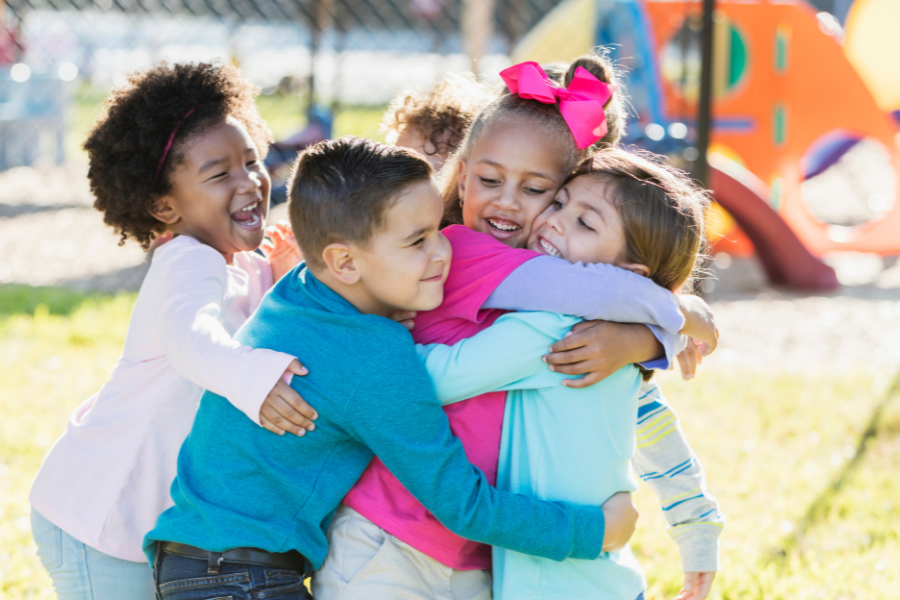
Lesson 4
Movement to Express Kindness and Love – How can you show others kindness and love? Discuss. In small groups use your arms and create a pose for what kindness and love look like. How can you practice this with classmates at school?
Grade 3 – 5
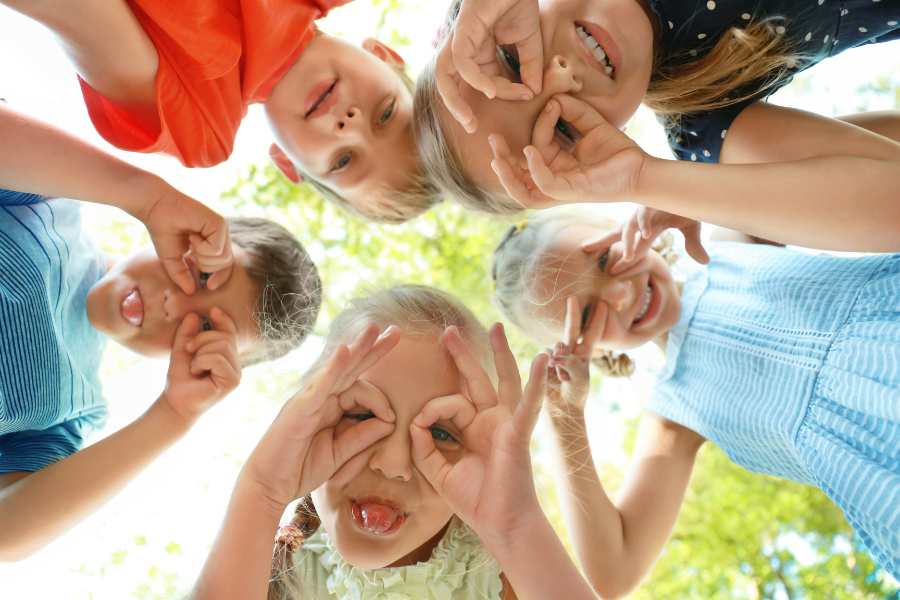
Lesson 1
Two Truths and a Lie – Class discussion: What is the difference between a truth and a lie? Can you tell when someone is lying? How? Share about a time when you told a lie. What happened? Let’s play a game called Two Truths and a Lie. Form a circle as a class or in small groups. One child starts by telling the group two truths and one lie about himself/herself. Try to use a straight face so that all three could be believable truths. The other children try to guess which was the lie by a show of hands. After playing the game, discuss: Was it easy to tell the difference between a truth and a lie? Why or why not? Why do you think people in Nazi Germany believed lies about Jews?
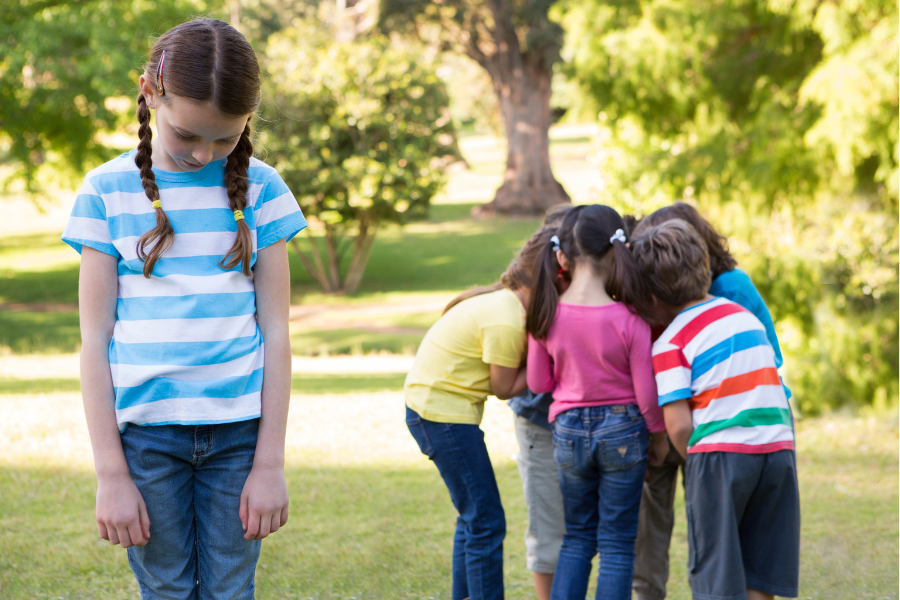
Lesson 2
What is Propaganda? Propaganda—information, ideas, or rumors spread widely to help or harm a person or group. The Nazis used all forms of media to mislead the public and promote their messages of hatred. Think about a time when you felt left out – not invited to a birthday party, excluded from a game at recess, or you couldn’t join the sports team you wanted to be on. How did you feel? Have you ever left someone out or spread a rumor about someone? Why? What can you do to be friendly and include others? Discuss with a partner or small group. Create a sign or symbol with your partner or small group with arms and hands that expresses including others.

Lesson 3
Wind Beneath My Wings – Bette Midler Music is an inspiring art form, and Bette Midler is a famous Jewish singer. She has a soaring voice that demonstrates the importance of friendship. Teacher clicks on the link and students gather close to listen, eyes closed. Have students pay attention to any images, words, or feelings that come to mind from the song. Who or what do you think is the wind beneath her wings? Who are the people who inspire you and why? Are good friends important? Why? What can you do when a new student arrives in your class?
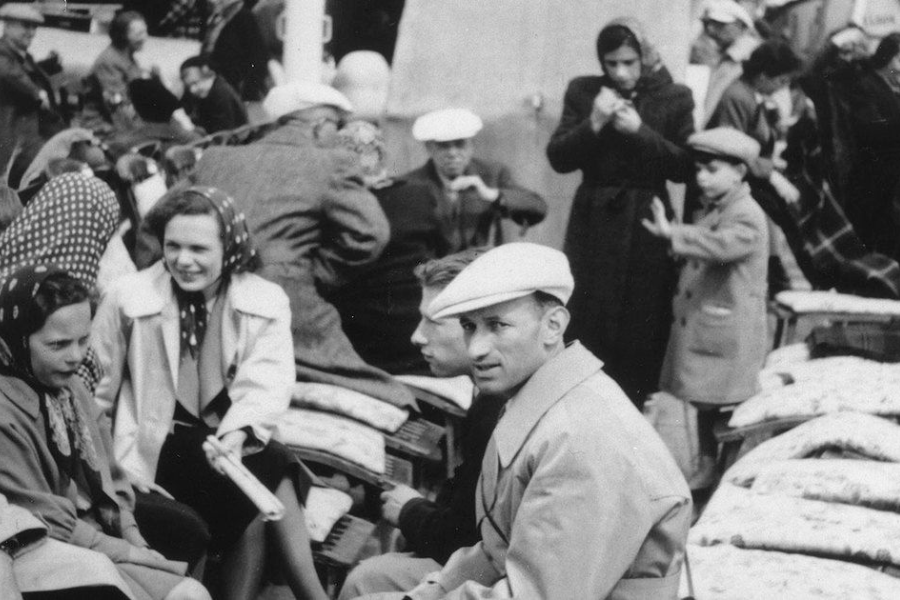
Lesson 4
The World’s Silence 1939 Passengers Aboard the St. Louis – United States Holocaust Memorial Museum
Teacher clicks the link to bring up the photo. Take a close look at the families on board. What do you see see? (ex. Children, smiles, love, hope for rescue) Why did Cuba and the United States refuse to give permission and accept the passengers? The ship had no choice but to return to Germany. What happened to hundreds of those passengers? The world’s silence convinced the Nazis that no one cared about the Jews. With a partner, talk about ways your can care about others, especially those who look or act different from you. Why is it important to care?
Grade 6 – 8

Lesson 1
Kristallnacht – Night of Broken Glass, November 9th and 10th, 1938. People were taught to hate the Jews from Nazi propaganda. This caused public violence. Click the link to watch the video. Kristallnacht: Remember the Night of Broken Glass
Discuss with a partner: What stays with you after viewing the video? What groups in school are the most popular? Why? Who is left out or ignored? Are some students bullied? How do you think that feels? How can you stand with fellow students and make friends with a variety of people? Why does this for the future of the world?
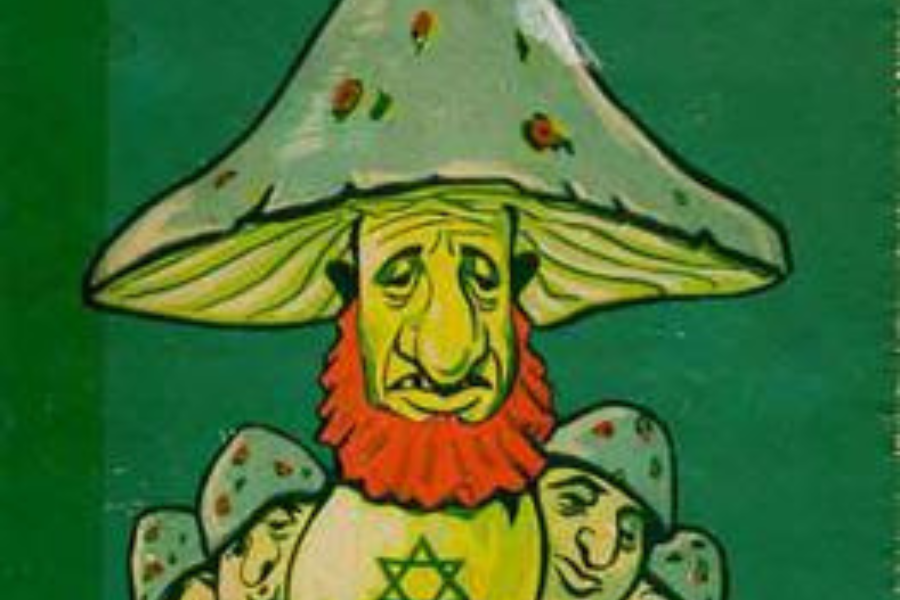
Lesson 2
Understanding Propaganda: The Poisonous Mushroom What is propaganda? Take a moment to look up this word on your phone. Share. The Poisonous Mushroom Click on the link and look carefully at each page. In small groups, discuss what you notice about how Jewish people are portrayed. How can you tell these images falsely portray the Jewish people? What can you do to stand against lies about racial or religious groups today? Why is this important?
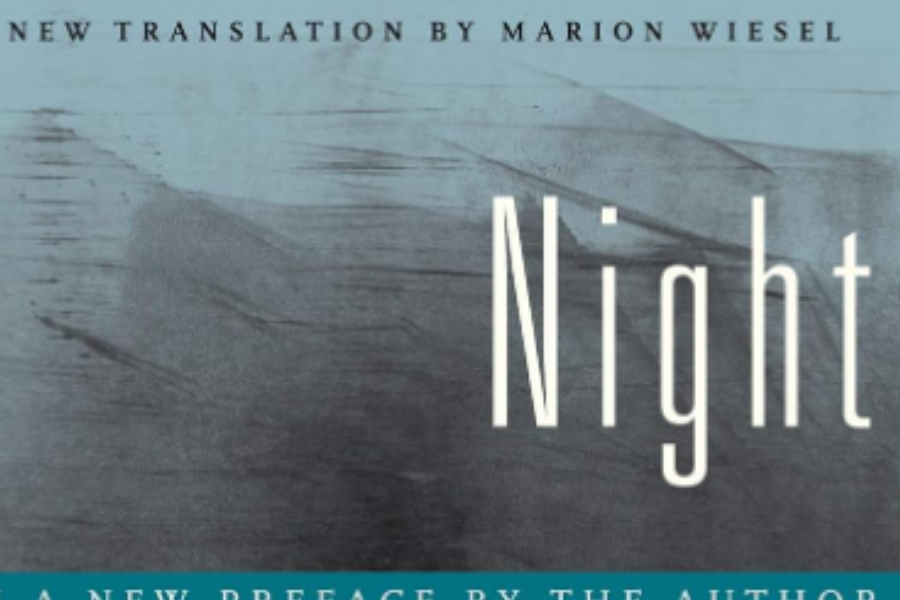
Lesson 3
Elie Wiesel was a writer and Holocaust survivor, author of the book Night which is based on his experiences as Jewish prisoner in the Auschwitz and Buchenwald concentration camps. Click on this link: Elie Wiesel – Quotes Read through the page of quotes and choose one that resonates with you. Talk with a partner or small group about the quote you chose. Why did you choose it? What does the quote mean? How does it connect to our world today?

Lesson 4
Spoken Word Poetry is a performance art where emphasis, emotion, inflection, and pace are dictated by the content. View the video below with a partner. Use your phones: one for watching, the other to write down words or lines that strike you. You can Pause the video as needed.
To This Day Project – Shane Koyczan What is this poem about? Talk or write about how it impacted you or write a poem about something from your life that’s been difficult. Have you ever been bullied? Have you been ignored or left out of groups at school? How do You find the inner strength to be yourself and support others?
Grade 9 – 12

Lesson 1
Newsreels – short films of news stories made for showing in a movie theater before the main film. Many people got their news from these and Nazi Germany used them as a form of propaganda. Choose one of the following links and watch 5-10 minutes of the film.
Triumph of the Will – The Power of Propaganda Triumph of the Will is regarded as one of the most powerful propaganda pieces ever made. How did the film advance the racist and anti-Semitic ideology of the Nazi party? What is the history of cinema as a tool of propaganda? Discuss with a partner or in a small group.
March of Time 1938 is first mainstream newsreel in the U.S. to directly call the Nazi regime in Germany fascist. What was the purpose of this film? Can you
See specific strategies of propaganda intended for the American public? Discuss with a partner or in a small group.

Lesson 2
Elie Wiesal-Holocaust Survivor – Click this link and use your phone your find out about Elie Wiesel. Read about his Early Life, Imprisonment and Orphaning during the Holocaust, and Post-war career as a writer. In small groups talk about one thing you learned about him from each section. Why is learning about Elie Wiesel important? What lesson can we apply to life in the 21st century? Do racism and antisemitism still exist in our society? Discuss specific examples. What can your generation do to create an inclusive society in our country to deal with these issues?
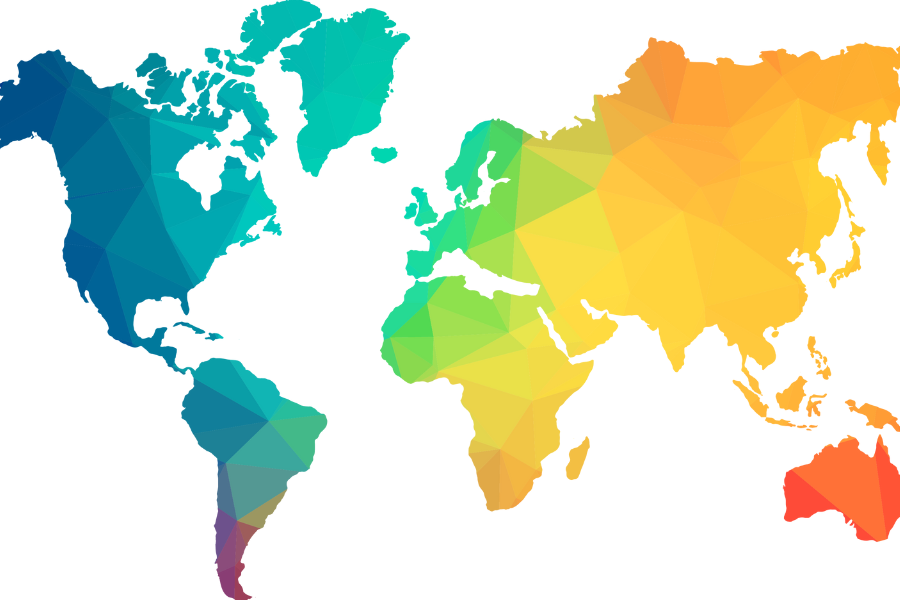
Lesson 3
Elie Wiesel – Universal Lessons of the Holocaust
View the video in the link. How did listening to this speech impact you? What are the universal lessons of the Holocaust? How do we create a more just and equitable world? What do we need to “learn and remember”? Use your phone to take notes on your answers to these questions: make a list, write a poem, tell a story. Share as a class.

Lesson 4
Impact of Social Media: Think about and discuss the different ways you get information. What forms of social media do you use? How much time do you spend each day reading or posting on different sites? How do you know what’s true and what isn’t? What sources do you use to keep up with current events? Do you follow groups or participate on sites like Twitter? Have you ever avoided someone because of something posted about them online? Why? What are some ways you can use social media to “become the messenger’s messenger”, to tell the truth and call out lies? Does doing this scare you? Why or why not?
COMING SOON!
Watch the Exhibit come to life
